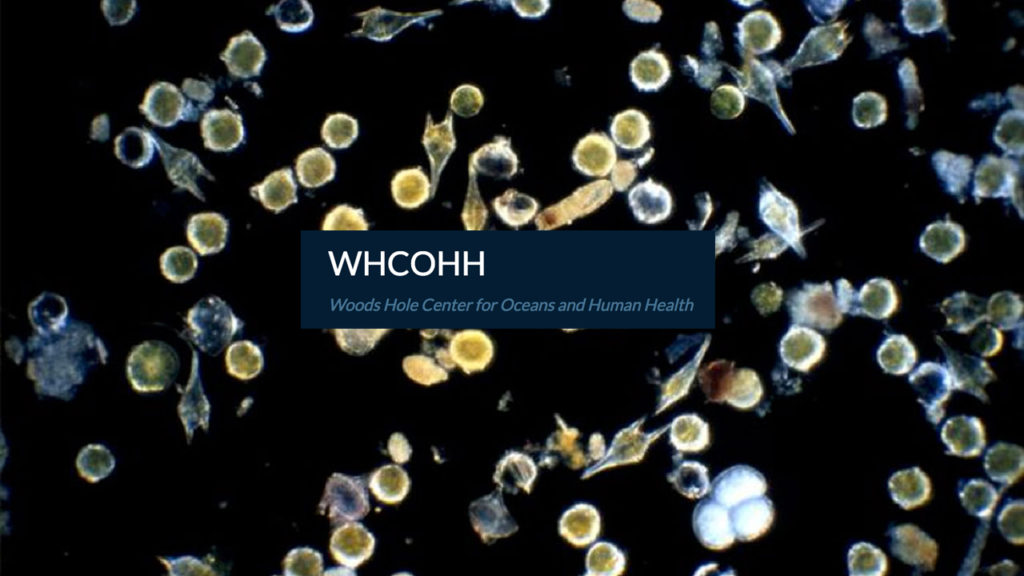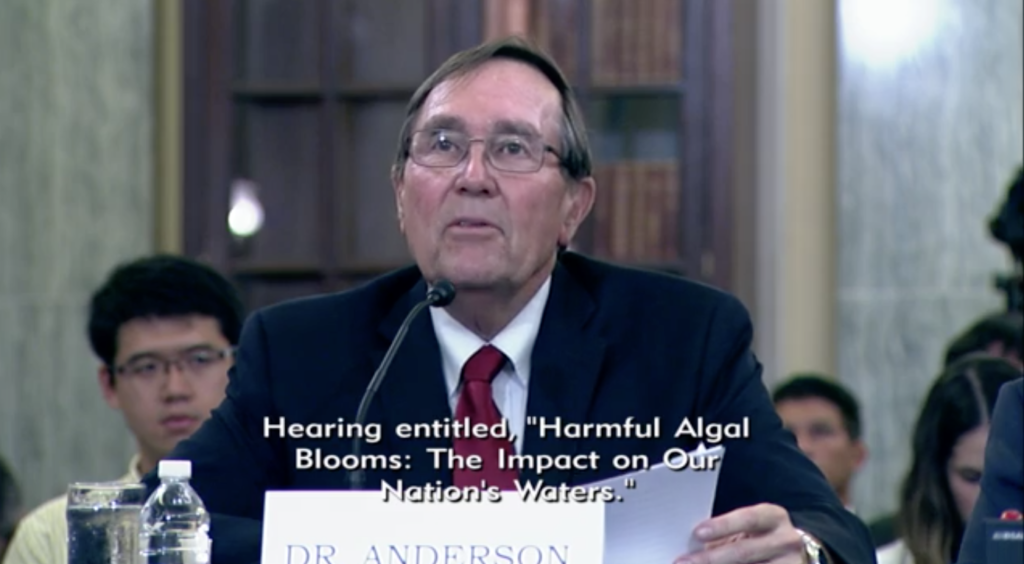Search results for: bloom
Programs
Programs U.S. National Office for Harmful Algal Blooms The U.S. National Office for Harmful Algal Blooms (HABs) serves as a “clearinghouse” for information related to national and international activities on HAB issues. One of its primary roles is to assist in the development of an integrated, national HAB research agenda based on technical evaluations of…
Read MoreNew project: mitigation of red tide in Florida
The Anderson Lab is launching a new project in response to this year’s record red tide events in Florida. In August, a state of emergency was declared due to a massive coastal bloom of the toxic dinoflagellate Karenia brevis. This event is responsible for creating widespread fish kills, causing respiratory distress in coastal inhabitants and visitors, and…
Read MoreFlorida Clay Mitigation
Florida red tide mitigation using clay dispersal In 2018, as in many previous years, the West Coast of Florida has experienced large expanses of “red tide”— blooms of the toxic alga Karenia brevis. The past 11 months have brought millions of dead fish washing up on beaches, as well as hundreds of manatees, turtles,…
Read MoreHome Page
Learn about our neat science Find out more Harmful Algal Blooms We study species of toxic algae that are responsible for disrupting human and ecosystem health. While some of these organisms create the phenomena commonly known as “red tides,” others can be less visible while still causing illness. From the Caribbean to the Arctic, our…
Read MoreOrigin and Fate of HABs in the Arctic
Origin and Fate of HABs in the Arctic Warming ocean temperatures and decreasing ice cover will likely expand the spatial and temporal window for HABs in the Arctic. Multiple HAB toxins are present in the Arctic food web, evidenced by observations of toxins and toxic cells in the region as well as high prevalence of…
Read MoreResearch
Our work spans the spectrum from mesoscale investigations of algal bloom dynamics to studies at the cellular and molecular levels. Projects We conduct field programs investigating the population dynamics of HAB species in various habitats, from shallow salt ponds to open coastal waters. We study the biological, chemical, and physical factors which regulate the growth and…
Read MoreWHCOHH granted five more years of funding
The Woods Hole Center for Oceans and Human Health (WHCOHH) was granted five more years of funding by the NSF and the National Institute of Environmental Health Sciences. This funding will be used to continue interdisciplinary work understanding the relationship of harmful algal blooms and marine pathogens to public health. Learn more about this award…
Read MoreDon testifies at Senate HAB hearing
On August 28, Don testified for the Subcommittee on Oceans, Atmosphere, Fisheries, and Coast Guard. The hearing, entitled “Harmful Algal Blooms: The Impact on Our Nation’s Waters” brought together experts, stakeholders and policymakers in the capital to discuss HAB events across the country. Other witnesses at the hearing included Bryan Stubbs of the Cleveland Water…
Read MoreCiguatera Fish Poisoning: Dinoflagellate dynamics, toxin formation, and economic impacts
Ciguatera Fish Poisoning: Dinoflagellate dynamics, toxin formation, and economic impacts Ciguatera is a complex clinical syndrome caused by the consumption of fish contaminated with toxins produced by the benthic dinoflagellate Gambierdiscus toxicus. It is the most common human illness associated with harmful algal blooms (HABs) and the one with the greatest public health and economic impact.…
Read MoreMating incompatibility among toxic and non-toxic populations of Alexandrium
Mating incompatibility among toxic and non-toxic populations of Alexandrium Harmful algal blooms (HABs) are a serious and growing problem in the US and the world. Impacts include the illness and death of human consumers of contaminated seafood, mass mortalities of fish and marine animals, deterioration of coastal esthetics and water quality, and broadly based ecosystem impacts.…
Read More
